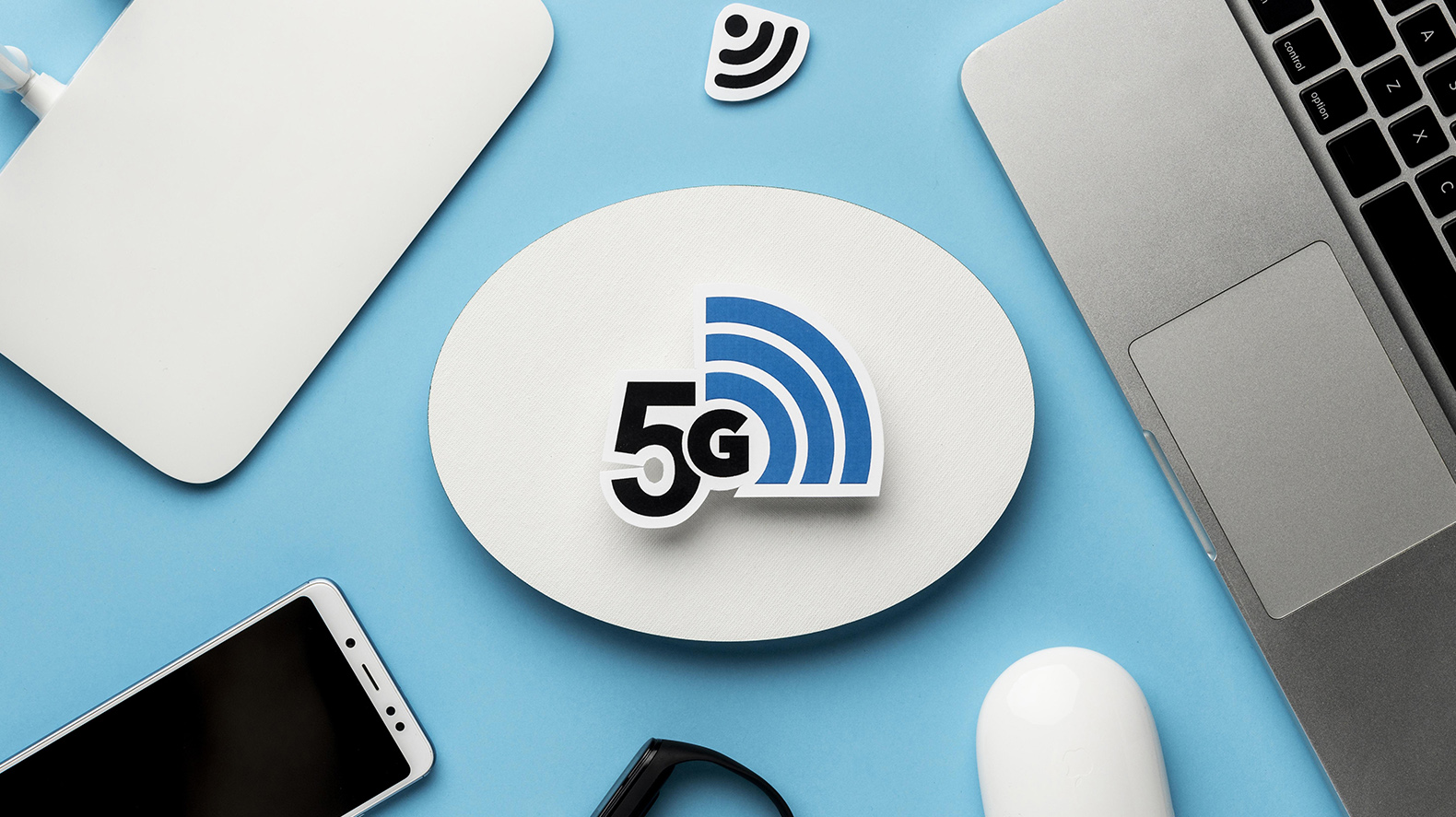The goal of technology has always been to accelerate, simplify, and integrate our lives. Dial-up internet used to be excruciatingly slow. Today, fiber optic connections are incredibly fast. Every major advancement has changed the way we live and work. Now, with the advent of 5G technology, the rules are changing again. 5G will not only make mobile internet faster, but it will also enable smart homes, self-driving cars, exciting games, and even new ideas for the future of healthcare.
In this article, we explore how 5G will transform everyday technology, what it means for customers, and how important it is for the future.
How is 5G different from previous technologies?
Before we understand the meaning of 5G, it’s helpful to understand how it differs from 4G and previous networks. With 4G LTE, we can watch HD video and connect seamlessly to apps. With 5G, the connectivity experience will be completely different.
5G offers you:
- Incredibly fast speeds: You can download and share files in seconds, not minutes.
- Low latency means there’s virtually no delay between sending and receiving data.
- The enormous capacity of devices means millions of connected devices can be used in the same location without overloading the network.
These features not only make using your smartphone easier but also open up new possibilities in many areas.
More than just speed: 5G and smartphones
Most people first encountered 5G through their smartphones. With 5G phones, watching 4K movies, playing cloud-based games, and having lag-free video chats are now the norm. But speed is more than just key.
Smartphones have become the hub for other technologies, such as virtual reality (AR) shopping and AI-powered health apps, all of which require fast data transfer. These features work even more smoothly with 5G, meaning your phone is more useful than ever in your daily life.
Smart homes are getting smarter
Many people are investing in smart home devices, such as voice assistants, connected security systems, and smart heating. On 4G networks, connecting too many devices to a single system can slow down speeds. But 5G can connect so many devices that your entire home can use connected devices simultaneously without any issues.
You can adjust the temperature in your home while you’re at work, monitor your security cameras in real time, and even have different devices communicate with each other. For example, your refrigerator can notify you on your phone when your milk is low, and your washing machine can run when electricity rates are lowest. With 5G, these devices will work better and more reliably.
A revolution in gaming and entertainment
5G will change everything for game and movie enthusiasts. Cloud gaming services like Xbox Cloud Gaming, NVIDIA GeForce Now, and Google Play require extremely low latency to work smoothly without physical devices. With 5G, multiple people can even play games simultaneously without annoying delays.
Streaming has also seen a huge improvement. Users can instantly watch movies in ultra-high definition without buffering. Virtual reality (VR) and augmented reality (AR), once limited by internet speed, are now commonplace. In other words, entertainment experiences are becoming increasingly engaging, dynamic, and accessible.
5G and Healthcare: How Connectivity Can Save Lives
Healthcare is one of the key areas where 5G will play a significant role. This advanced technology has a wide range of applications, including remote consultations, smart technology, and even robotic surgeries.
Wearable health monitors can now send real-time data to doctors, allowing them to help patients faster. Thanks to 5G’s low latency, doctors can now perform surgeries thousands of miles away. 5G also makes previously unavailable healthcare accessible to people in rural or underdeveloped areas.
Mobility and Smart Cities
Our future mobility depends on 5G. Self-driving cars, for example, require continuous processing of enormous amounts of data to ensure safety. 5G enables communication between cars, with traffic lights, and with roadside assistance equipment.
Smart places are also emerging. 5G supports systems needed to reduce congestion, mitigate pollution, and improve life, from intelligent traffic control systems to energy-efficient street lighting. Ultra-fast networks can also help public services like emergency services perform their tasks more effectively.
Questions and Thoughts
5G has the potential to deliver enormous progress, but it’s important to remember that there are still challenges to be addressed. Building new infrastructure takes time, especially in rural areas. Security is also a concern, as more devices connected to the network means more opportunities for hackers to break in.
Furthermore, not all devices are 5G-ready, so people may need to upgrade their devices to take full advantage. Even with these challenges, the benefits of 5G outweigh the drawbacks, and global adoption is growing rapidly.
Frequently Asked Questions
1. How is 5G different from 4G?
Compared to 4G, 5G offers faster speeds, lower latency, and can connect more devices simultaneously. This makes it better suited for both routine tasks and advanced technologies like smart cities and self-driving cars.
2. Do I need a new phone to connect to 5G?
Yes, you need a smartphone or other 5G-capable device. Older 4G phones cannot connect to 5G networks.
3. Are there any health benefits of 5G?
Numerous studies and global health organizations such as the World Health Organization have not yet found strong evidence that 5G is harmful to health. 5G operates at higher frequencies than other networks and uses radio waves in the same way.
4. How will 5G improve my daily life?
5G will make daily life easier, safer, and more efficient by accelerating streaming and gaming, improving smart homes, and enhancing healthcare and transportation.
5. When will 5G be available to everyone?
While 5G has launched in many major cities worldwide, coverage in rural and remote areas may take longer. Telecom companies are developing rapidly, and their global services will improve significantly in the coming years.
Summary
The advent of 5G technology has not only changed our internet speeds but also the way we connect with everything around us. 5G is changing the way people live today, making homes better, entertainment more engaging, life-saving medical advancements, and the development of smart cities possible.
While challenges remain, such as infrastructure and security issues, the benefits of this new network are clear. As more people embrace 5G, it will continue to transform the way we use technology daily, making our lives more connected, productive, and enjoyable than ever before.

